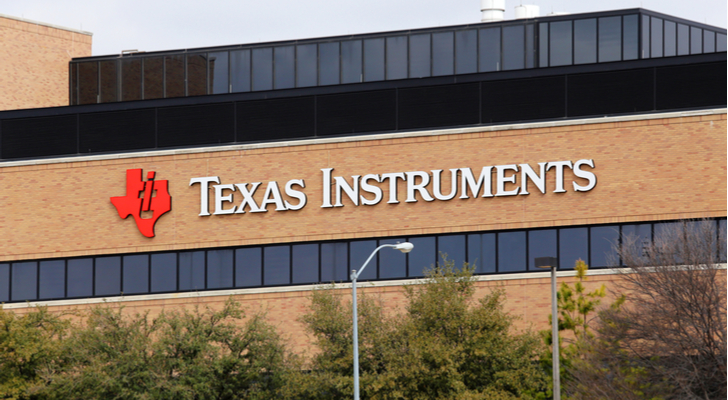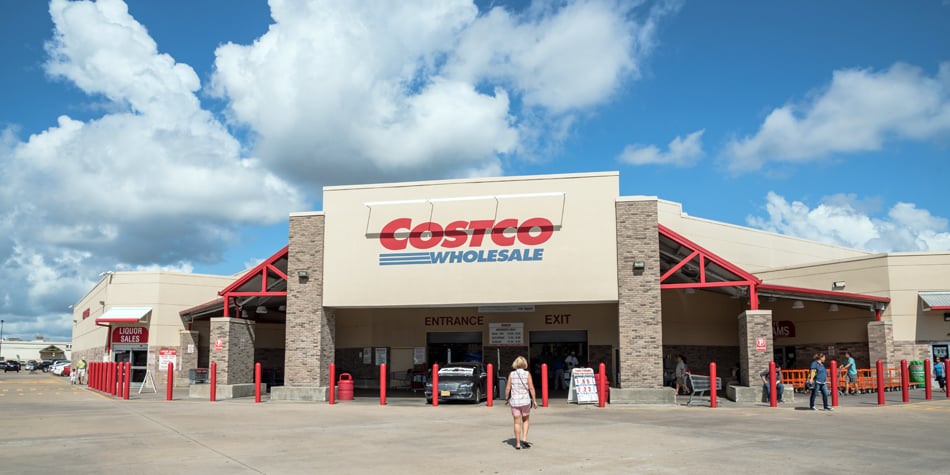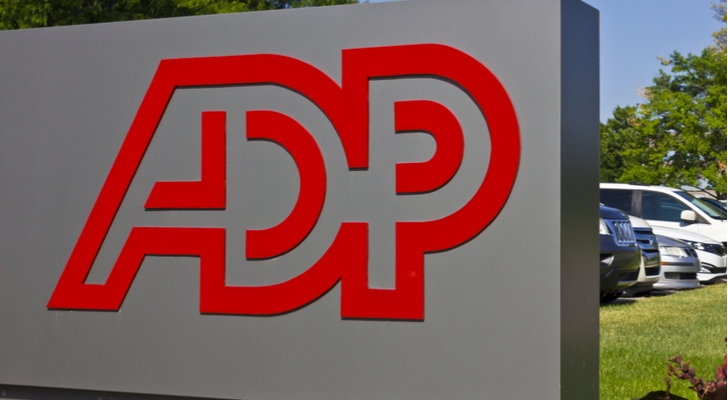[Editor’s note: This story was previously published in February 2019. It has since been updated and republished.]
When the stock market marches higher, it pushes the prices of many companies higher along with it. But as investors bid up good and bad businesses alike, that can make it hard to discern which companies are the best dividend stocks for long-term investors. That’s especially true in the world of dividends.
In this income-centric world, income-starved investors face great temptation to reach for high-dividend stocks that offer juicy yields. Fortunately, Simply Safe Dividends identified the nine best dividend growth stocks that investors can rely on for secure, fast-growing income.
These companies all have very healthy Dividend Safety Scores, which measure a firm’s most important financial metrics to gauge how likely it is to cut its dividend in the future.
Let’s take a look at nine of the safest dividend stocks in the market. These dividend-paying companies generate excellent free cash flow, maintain safe payout ratios, are committed to rewarding shareholders with healthy dividend increases and have bright long-term outlooks.
Compare Brokers

 Source: Mike Mozart via Flickr (modified)
Source: Mike Mozart via Flickr (modified) Lowe’s (LOW)
Dividend Yield: 1.81%
5-Year Annual Dividend Growth Rate: 21.70%
Year-to-Date Gain: 14.21%
Lowe’s Companies, Inc. (NYSE:LOW) is the world’s second-largest home improvement retailer.
With more than 65 years of existence, this dividend stock has gained recognition as one of the trusted national brands. Over the years, Lowe’s has developed an extensive line of thousands of products for maintenance, repair, remodeling and decorating across lumber and building materials, tools and hardware, lawn and garden, paint, kitchens, outdoor power equipment and home fashion categories.
The company serves a wide spectrum of “do-it-yourself” and “do-it-for-me” customers, including homeowners, renters and professional contractors from different construction trades.
A large footprint of conveniently located stores across the U.S., an extensive range of products, a well-known brand and a diversified customer base are Lowe’s key competitive advantages.
The home improvement industry is also poised to grow as consumer confidence remains high, employment continues rising and home prices climb higher. This should lead to better growth prospects for the company and its dividend.
Lowe’s has an impeccable record of not only paying but also increasing its dividend since 1961, growing it by over 20% annually in the last five years. Lowe’s forward price-earnings (P/E) ratio of 25.85 seems reasonable for a company of this quality.
Compare Brokers

 Source: Becky Wetherington via Flickr (modified)
Source: Becky Wetherington via Flickr (modified) Honeywell (HON)
Dividend Yield: 2.07%
5-Year Annual Dividend Growth Rate: 12.5%
YTD Gain: 20.61%
Honeywell International Inc. (NYSE:HON) is a diversified global technology and manufacturing company supplying industrial products, software and services to a diversified set of customers.
Honeywell operates through four segments: aerospace; home and building technologies; performance materials and technologies and safety and productivity solutions .
The company serves customers through a wide variety of products and services in aerospace, control, sensing and security. It also sells specialty chemicals and advanced materials as well as energy efficiency products.
Simply put, Honeywell has invented key technologies that address some of the world’s most critical challenges around energy, safety, security, productivity and urbanization. With a broad portfolio of physical products and software, the company has uniquely positioned itself to sell comprehensive solutions for homes and businesses across many industries.
A broad portfolio of technology, extensive products and services, a global distribution network, and a presence in growing areas like the Internet of Things and energy efficiency are Honeywell’s key strengths.
A track record of strong financial performance and a healthy payout ratio have enabled the company to grow its dividend by 11.5% per year over the last five years. Honeywell has paid uninterrupted dividends for more than two decades.
The company’s earnings per share are expected to rise nearly 10% this year. It should, therefore, continue its impressive dividend growth streak with high-single to low-double-digit annual payout growth in the future as well.
Compare Brokers

 Source: Shutterstock
Source: Shutterstock Apple (AAPL)
Dividend Yield: 1.5%
3-Year Annual Dividend Growth Rate: 11.20%
YTD Gain: 20.25%
Apple Inc. (NASDAQ:AAPL) is one of the world’s most valuable companies and one of the largest positions in Warren Buffett’s dividend stock portfolio.
Apple is the world’s second-largest smartphone company, accounting for more than 10% of the global market share. The iPhone, iPad, Mac, Apple Watch and Apple TV are Apple’s key products, with the iPhone representing over the majority of its 2018 sales. These products are globally recognized for their high quality, premium brand and ease-of-use, allowing Apple to enjoy substantial pricing power.
In addition, the company also owns a portfolio of consumer and professional software such as iOS, macOS, watchOS and tvOS operating systems that act as key differentiators. Apple’s products and solutions are known for their innovative design, user-friendly experience and seamless integration. All these innovative products have established Apple’s supremacy in the mobile space, and the company invests around 5% of its revenues on R&D activities to stay ahead of competitors.
Moreover, only Apple devices run iOS, which means that if customers want to remain within the Apple ecosystem, they must continue buying iOS devices. This results in sticky customer relationships. Its sales of games, music and other digital content through the iTunes store is another high-margin cash flow stream that keeps growing every year.
A leading brand name, global geographical presence, impressive product portfolio and super-sticky customer relationships have helped form a huge moat around Apple’s business.
Apple started paying dividends again in 2012 and it has seen its payout grow by approximately 13.5% annually over the last three years. It last raised its payout by 16%.
Given Apple’s leading market share, loyal customers, innovative products and hoard of cash on the balance sheet, the company should continue raising its dividend at a strong pace in the future as well.
Compare Brokers

 Source: U.S. Embassy Kyiv Ukraine via Flickr (Modified)
Source: U.S. Embassy Kyiv Ukraine via Flickr (Modified) Medtronic (MDT)
Dividend Yield: 2.14%
5-Year Annual Dividend Growth Rate: 13.30%
YTD Gain: 4.3%
Medtronic plc. Ordinary Shares (NYSE:MDT) is a leading medical technology, services and solutions company serving hospitals, physicians, clinicians and patients worldwide. It owns a portfolio of medical products, therapies and procedures for a wide range of medical disciplines.
Medtronic’s operating segments are classified into cardiac and vascular, minimally invasive therapies, restorative therapies and diabetes groups. The U.S. is Medtronic’s largest market, followed by Western Europe, Japan and emerging markets.
With nearly seven decades of existence, Medtronic has developed a strong reputation globally and claims to improve the lives of two people every second. Some of Medtronic’s key innovations include the world’s smallest pacemaker and artificial pancreas.
As a leader in medical technology and solutions, Medtronic stands to benefit from growing healthcare needs as the global population ages. The business also benefits from meaningful barriers to entry created by various regulations from the U.S. Food and Drug Administration and other government agencies.
Thanks to its product innovation and conservative management, the company has increased its dividend for 40 years in a row and last raised its dividend by 8.7% in 2018.
Given the company’s technology leadership and unmatched breadth and scale, Medtronic should be able to continue its dividend growth streak at a high-single-digit rate going forward. Investors can learn more about Medtronic’s competitive advantages and business profile here.
Compare Brokers

 Source: Shutterstock
Source: Shutterstock Texas Instruments (TXN)
Dividend Yield: 2.74%
3-Year Annual Dividend Growth Rate: 57.50%
YTD Gain: 19%
Texas Instruments Incorporated (NASDAQ:TXN) is one of the largest designers and sellers of semiconductors globally. It develops analog integrated circuits and embedded processors that are subsequently sold to electronics manufacturers. The company’s product portfolio consists of tens of thousands of products that are used to accomplish many different things, such as converting and amplifying signals, interfacing with other devices and managing and distributing power.
Texas Instruments’ focus on these segments provides a combination of stability and strong cash generation, owing to the products’ long product life cycles and low capital-intensive manufacturing.
Leading industry products, a diverse portfolio, unique technologies and manufacturing scale and a strong reputation enable Texas Instruments to generate stable and recurring cash flows.
As a result, Texas Instruments has paid uninterrupted dividends since 1962 and it has recorded an impressive annual dividend growth rate of approximately 34.2% over the last three years.
Last year marked the company’s 14th consecutive year of dividend increases, wherein Texas Instruments raised its dividend by nearly 25%.
Given its predictable cash flow generation, impressive dividend track record and reasonable payout ratio,, the company should be able to continue rewarding shareholders with double-digit dividend growth in the years ahead.
Compare Brokers

 Source: Shutterstock
Source: Shutterstock Costco (COST)
Dividend Yield: 0.95%
5-Year Annual Dividend Growth Rate: 12.8%
YTD Gain: 17.1%
Costco Wholesale Corporation (NASDAQ:COST) is a membership warehouse club with more than 500 U.S. store locations that provide merchandise at low prices to its members. Costco sells a wide range of products, including packaged foods, groceries, appliances, cleaning supplies, clothing and electronics.
The company is the world’s second-largest retailer by sales and it generates the majority of its sales in North America. Costco’s membership base is growing with a renewal rate of over 90% as of its December 2018 quarter.
Over its 35 years of existence, Costco has succeeded in providing a great customer experience by blending together the convenience of specialty departments and a selection of wide merchandise at affordable prices. It has become a trusted name owing to its low cost and quality merchandise.
The company buys directly from many producers of national brand-name merchandise and sends products directly to its warehouses, eliminating multi-step distribution costs. High sales volumes, rapid inventory turnover, efficient distribution and self-service warehouse facilities also ensure high operational efficiency.
A large and loyal customer base, economies of scale, a diverse mix of merchandise, and strategically-located warehouses are Costco’s major competitive advantages.
Analysts expect Costco’s sales growth to sit in the mid-single-digits range over the long-term, which could result in 8%-9% annual earnings growth in the coming years. Costco could, therefore, continue its solid pace of dividend growth.
Compare Brokers

 Source: Shutterstock
Source: Shutterstock American Tower (AMT)
Dividend Yield: 1.85%
3-Year Annual Dividend Growth Rate: 23.20%
YTD Gain: 24.35%
American Tower Corp (NYSE:AMT) is a leading owner, operator and developer of multitenant communications real estate. The company was formed in 1995 as a unit of American Radio Systems and it was spun off in 1998 when that company merged with CBS Corporation.
American Tower reports its results in five segments U.S. (59% of 2016 sales), Asia (14%), EMEA (9%) and Latin America (17%) property, and services (1%). It owns a portfolio of over 170,000 communications sites.
American Tower leases space on its communications sites to wireless service providers, radio and television broadcast companies, government agencies and tenants in a number of industries. Its top tenants include well-known names like AT&T Inc. (NYSE:T), Verizon Communications Inc. (NYSE:VZ), T-Mobile Us Inc (NASDAQ:TMUS) and Sprint Corp (NYSE:S).
The real estate investment trust derives most of its revenue from tenant leases, which typically have an initial non-cancellable term of ten years with multiple renewal terms, as well as provisions for annual price increases. It is difficult for tenants to find suitable alternative sites and as such the lease renewal rates are generally high.
Moreover, the incremental operating costs associated with adding new tenants to an existing communications site are relatively low and annual capital expenditures to maintain communications sites are also not high. All these factors provide high cash-flow visibility and excellent profitability for American Tower.
American Tower should keep growing its earnings as demand for wireless services and data grows in the coming years. A global asset base, recession-proof demand for its sites, long-standing relationships with customers and low cash-flow volatility provide a moat around American Tower’s business.
Simply put, wireless tower companies possess many attractive qualities. That’s probably why Crown Castle International (CCI), one of American Tower’s peers, is a position in Bill Gates’ dividend stock portfolio.
Given American Tower’s history of double-digit growth in property revenue and the near-tripling of its dividend in just the past five years, shareholders can likely expect at least 20% annual dividend growth in the years ahead.
Compare Brokers

 Source: Shutterstock
Source: Shutterstock Becton, Dickinson and Company (BDX)
Dividend Yield: 1.25%
3-Year Annual Dividend Growth Rate: 29.10%
YTD Gain: 8.8%
Becton, Dickinson and Co (NYSE:BDX) is a global medical technology company engaged in the development, manufacture and sale of a broad range of medical supplies, devices, laboratory equipment and diagnostic products. The company uses independent distribution channels to distribute its products both in the U.S. and internationally.
Europe, EMA, Greater Asia, Latin America and Canada are Becton Dickinson’s major international markets. Becton Dickinson is also growing its presence in emerging markets.
The company has major R&D facilities located in North America, China, France, India, Ireland and Singapore. BDX’s customer base is also quite diverse, ranging from healthcare institutions, life science researchers and the pharmaceutical industry to clinical laboratories and the general public.
Diversification across geographies, customers and products, strong R&D capabilities and a portfolio of successful brands are Becton Dickinson’s key competitive advantages. With more than a century’s worth of operating experience, the company is known for providing integrated products and services that seamlessly support healthcare providers across care areas. Its acquisition of C.R. Bard is also expected to create a stronger company in the future.
Becton Dickinson is a dividend aristocrat with 46 years of consecutive dividend growth. It has grown its dividend at an impressive 10% compound annual growth rate over the last five years.
With its need to restore its balance sheet after acquiring C.R. Bard, dividend growth over the near-term will likely remain below the company’s historical double-digit pace. However, with earnings expected to grow over 10% this year, it won’t be long before investors are once again rewarded with strong payout growth.
Compare Brokers

 Source: Shutterstock
Source: Shutterstock ADP (ADP)
Dividend Yield: 2.03%
5-Year Annual Dividend Growth Rate: 7.6%
YTD Gain: 19.3%
Automatic Data Processing (NASDAQ:ADP) is a top global provider of cloud-based Human Capital Management (HCM) solutions, and a leader in business outsourcing services, analytics and compliance expertise.
Automatic Data Processing’s business can be categorized into two reportable segments — Employer Services and Professional Employer Organization Services. By geography, the U.S. is its largest market, accounting for most of its revenues followed by Europe, Canada and other .
Automatic Data Processing provides a host of services ranging from recruitment to talent management to retirement that help customers improve their business results and alleviate the pain from non-core, administrative tasks.
The company serves over hundreds of thousands of clients ranging from small and mid-sized to large organizations operating in more than 110 countries around the world. It caters to the needs of more than 70% of the Fortune 500 companies.
Automatic Data Processing is responsible for making payments to approximately one out of every six U.S. workers and nearly 13 million workers internationally. In addition, its mobile applications enable over 10 million of its clients’ employees to easily access to their HR information.
With six decades of experience, Automatic Data Processing has developed deep insights and cutting-edge technologies that have transformed human resources from a back-office administrative function to a strategic business advantage.
A client-centric approach, long-standing customer relationships, extensive experience in payroll services and a growing demand for cloud platforms are Automatic Data Processing’s biggest advantages.
The company has raised its dividend for 43 years in a row,. Automatic Data Processing’s earnings-per-share is expected to rise over 10% this year, which should allow dividends to continue compounding at a high-single-digit rate over the medium-term.
As of this writing, Brian Bollinger was long LOW, MDT,
No comments:
Post a Comment